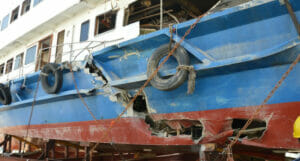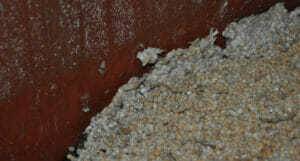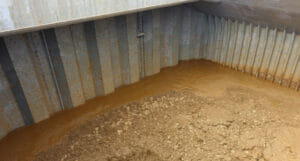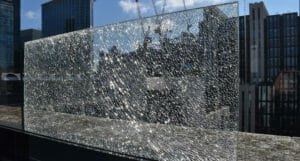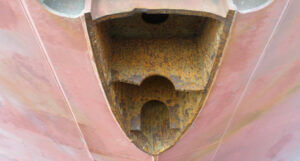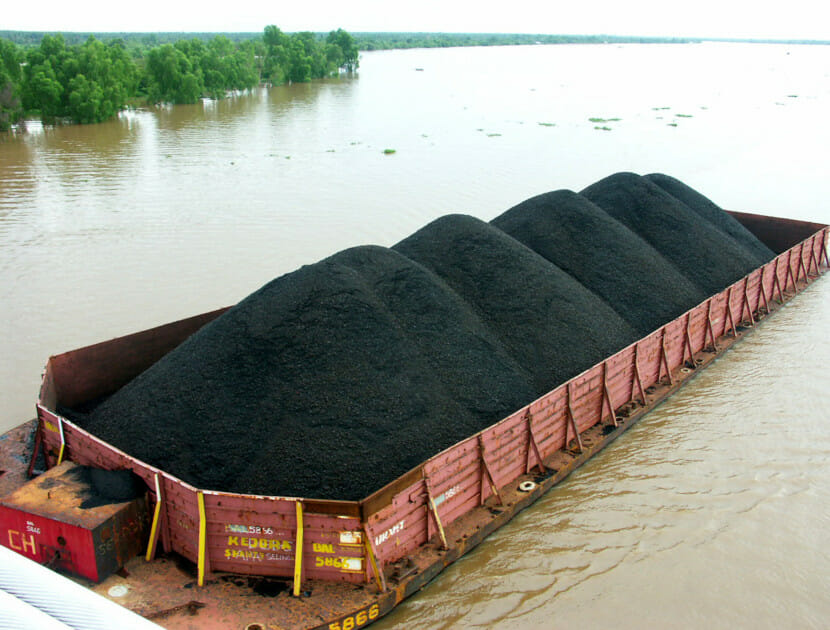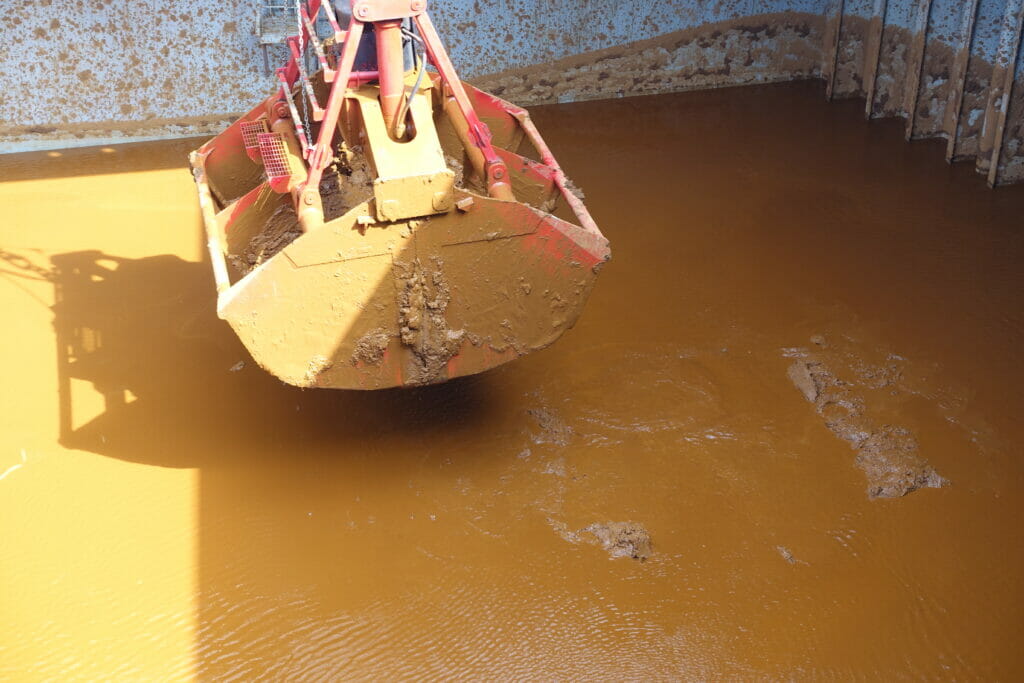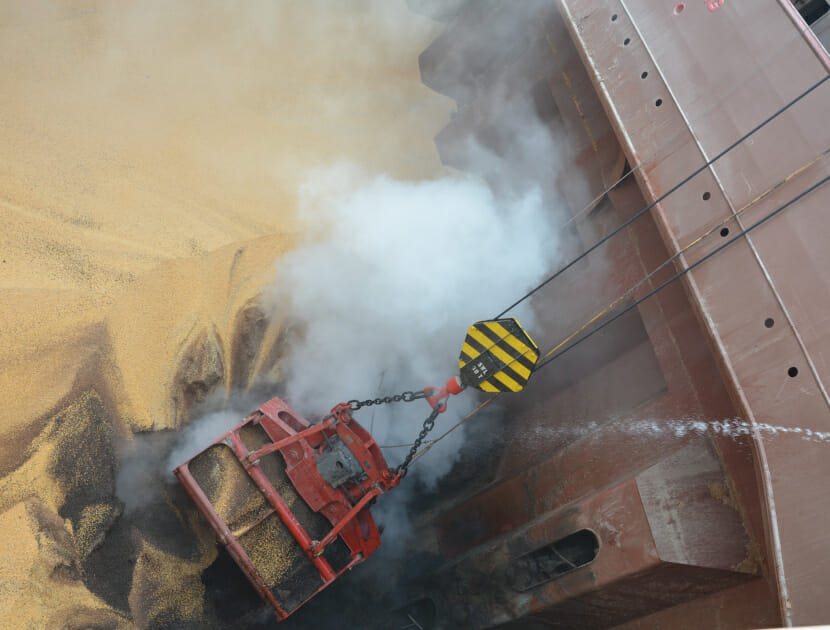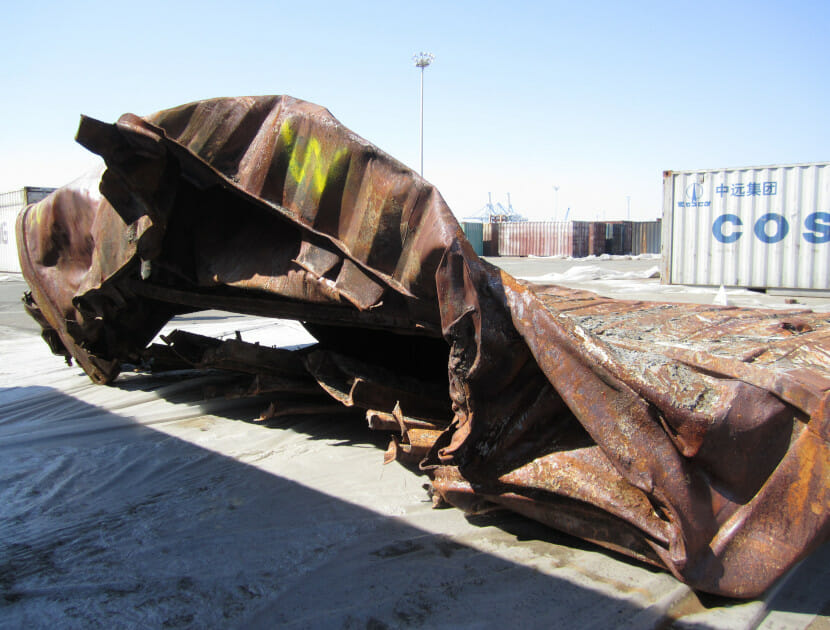Handling & Carriage of Oil and Chemical Cargoes
The trade and transportation of bulk liquid cargoes involves complex operations within the various shore terminals, storage vessels (STS: Ship-To-Ship transfer) and the tanker vessels that load, carry and discharge the cargoes. These voyages may involve the transfer and carriage of a single grade of cargo or multiple grades at the same time.
Whilst good industry practice, recommendations and guidance have been developed for the safe handling, measurement, sampling and testing of such cargoes, quantitative losses (physical loss of volume or weight) do occur during these operations. It is important to identify whether the reported quantity loss is an actual physical loss of volume/weight or merely a “paper” loss. A physical loss can be a result of spillage, incorrect transfers, leaking valves or an inadequate line displacement whilst a “paper” loss may be a result of incorrect calculations including, for example, using different Volume Correction Factor (VCF) Tables, tank calibration tables or density changes as tested and recorded.
Changes in the quality characteristics can occur where the quality in the receiving tanks, be that in shore tanks or ship’s tanks, is not the same as reported in the tanks of origin and/or does not meet an agreed specification. Hawkins can determine whether a change is due to physical changes in the characteristics and components in the cargo such as contamination by another cargo, a chemical component, a deleterious material and/or a visible change such as colour, haze, observed water and/or particulate matter. We can also investigate whether a change is a result of using different test methods or explained by test variables such repeatability and reproducibility.
There is a series of further questions that may need to be considered where there is a physical loss of quantity or an actual change in the quality characteristics of the cargo, such as:
- What is nature and extent of contamination and/or loss?
- What reasonable mitigation options and strategies need to be considered and implemented to manage the loss and reduce costs?
- What was the cause of contamination or physical loss and how and at what stage did it occur?
- Was there a lack of due diligence in the terminal operations or on the vessel?
WHY APPOINT A FORENSIC INVESTIGATOR?
Hawkins’ Marine Team has the technical knowledge and experience to investigate all aspects of the transportation of bulk liquids.
Our team comprises of experts in multiple disciplines including analytical chemists, material and failure scientists and terminal/marine vessel operations.
We are fully familiar with the relevant international regulations and IMO conventions as well as industry guidelines and standards including ASTM, ISO Energy Institute, OCIMF and ICS amongst others.
We can assist by undertaking risk management studies and assessments of operational practices and methods.
We can undertake a detailed review of the operational records and measurements for each stage of the voyage to establish the nature, cause and extent of a loss.
We can investigate the cause of contamination or physical loss to determine how it happened and at what stage it occurred.
In the case of apparent contamination of the cargo not meeting a particular specification, we can undertake a review of the information presented and provide potential options and actions to further investigate and mitigate the loss.
We are available to attend site and inspect the vessel and shore arrangements at loading and/or discharge to investigate further and gather more details.
We can recommend sampling protocols for the vessel and shore tanks tailored to the circumstances including preparation of analytical protocols under the appropriate test methods.
We can assist in providing mitigation options to be considered including blending, filtering and other potential processes. This can include conducting laboratory trial blending and testing to ascertain if the proposal is a practicable option.
We can consider terminal and vessel operations as part of the investigation into the cause and how it occurred and explore whether there have been omissions or a lack of due diligence at any stage.
Our consultants are experienced in providing expert witness services to clients in Courts and Tribunals in many jurisdictions around the world including UK, EU, Singapore, China, and Australia.
We are familiar with the technical aspect of marine claims and with the procedures and formalities of preparing reports, memoranda and giving evidence in Courts and Tribunals.
We are familiar with joint attendance on site and joint expert witnessed testing with the relevant parties.
As part of a review of the loss we can undertake risk and operational assessments to manage and minimise the risk of the incident re-occurring.
Where a risk cannot be removed entirely, we may be able to mitigate the potential for the loss to occur again and/or reduce the extent of the damage.
We can review the ship and shore arrangements and operational practices to make recommendations in accordance with regulatory requirements and industry guidelines as indicators of good practice.
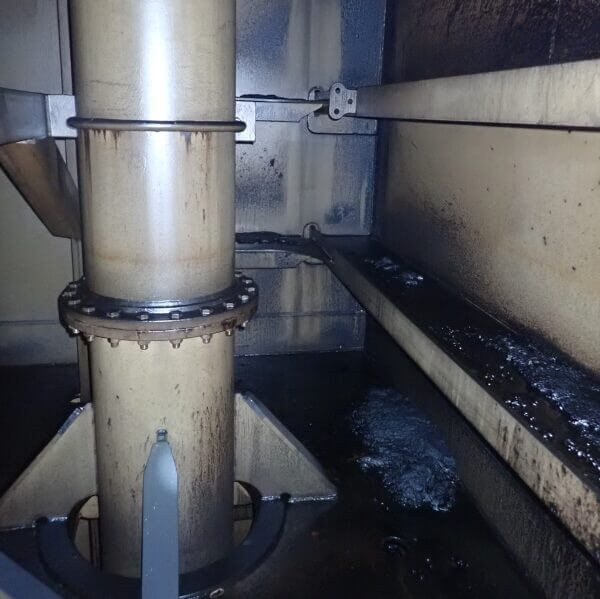
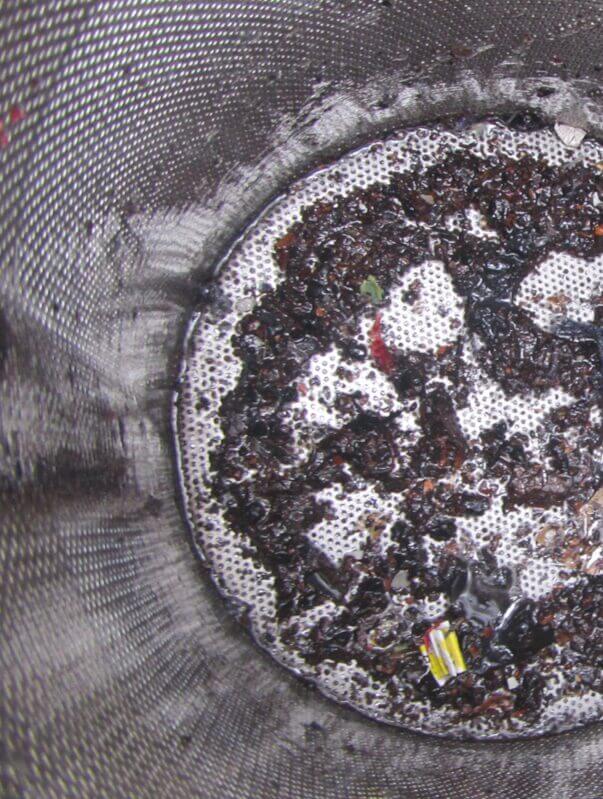
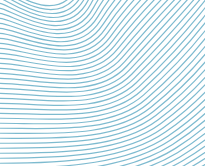
Examples of Typical cases
- Pre-existing specification issues of the cargo in the storage tanks loaded onto the vessel.
- No adequate line displacement at load and discharge port where the shorelines were not entirely full resulting in a physical loss against the Bill of Lading.
- Loading and discharging multiple grades simultaneously where leaking valves or incorrect manipulation of the valves segregating the grades resulted in cross-contamination during loading or discharge.
- Flash point deterioration of Gasoil by both contamination from a low flash point cargo such as motor gasoline.
- Cost effective blending, filtering and other processes to reinstate the contaminated material into sound material.
- Particulate matter in shore tanks or in vessel’s tanks and determine its origin.
- Hazy cargo caused by the presence of water in samples taken at the vessel’s manifold. The cargo was rejected by the receiver and the origin of the water was an issue to be established.
- Leakage of segregated ballast into the cargo system during loading and discharge.
- Inadequate cleaning of a vessel’s tanks resulting in cargo being contaminated by components of the previous one.
- Despite undergoing a tank cleaning programme, absorption of a previous cargo into the tank coating resulted in desorption at a later date which contaminated the subsequent high grade chemical cargo.
- ROB/OBQ inspections: We can inspect the cargo tanks, determine the tanks are suitably emptied, and verify that they are in a suitable condition for reloading.
Whilst site attendance can be dependent on the safety and accessibility of a location, we normally schedule visits within one day of instruction.
If you would like to discuss how we can assist you please fill out our enquiry form or call us for a free consultation.
HOW DOES HAWKINS INVESTIGATE BULK LIQUID CARGO INCIDENTS, LOSSES & FAILURES?
1
Consultation
We review the information initially provided. We make contact with the instructing clients with our preliminary views and which will may well include a request for additional information. This request might include load and discharge reports, vessel operational documentation, plans, samples listings, any photographs relevant to the issues, certificates of analysis and test reports. We can consider securing the samples currently available and make recommendations as to taking further samples and any retesting.
2
Inspection
We consider with the client whether it would be recommended for Hawkins to attend the site and investigate further. This may include taking joint samples, testing of the samples taken to determine the nature and extent of the loss and/or contamination. Subject to agreement of the various parties, we can inspect the vessel and terminal arrangement. We request operational documents, plans and procedures from the terminal and the vessel relevant to the investigation the cause and at which stage the loss occurred.
In parallel we would consider mitigation options and comment accordingly and discuss if laboratory trial testing for blending, filtering or another process is required to re-instate the product.
3
Conclusion
Following our review of the available documentation and information we discuss our current findings and prepare an Initial Report. We outline our recommendations as to any additional work, testing and requests for further documentation and details from the interested parties. We discuss sealing and retention of the samples pending further joint witness analysis as may become necessary.
SPEAK TO ONE OF OUR EXPERTS
Testimonial
“Thank you for your superb effort in this case.”
Rhys Phillips
“Many thanks for turning out today at such short notice and providing the benefit of your expertise and knowledge. It was evident the Client was extremely relieved that this matter was being investigated expeditiously.”
Chaz Winterton
“I just wanted to say thank you for all your help and the information you found was of real insight. Thank you again for all your help.”
Stewart Hargreaves
“I just wanted to say thank you for all of your hard work preparing the Hawkins report. Please pass on my thanks to the rest of the team. We really appreciate the hours you have all put in and I know the client is pleased with your work.”
Philippa Jones
“I have recently needed structural engineering opinion on one matter and geotechnical engineering opinion on another. I experienced the usual difficulties with traditional providers of those services – excessive cost, inability to get on site quickly etc etc. When turning to Hawkins the contrast was clear – economical pricing, fantastic turnaround times, and really helpful reports that focussed on my needs without me needing to spend ages spelling it all out.”
Hawkins client
Related areas of expertise
Marine Engineering
The maritime and offshore engineering industry encompasses a wide range of disciplines and any incidents or losses can be complex in nature.
Cargo Spoilage
Many agricultural cargoes such as maize (corn), wheat, soybeans and seedcake are shipped in bulk. Such cargoes have a limited safe storage period before their quality deteriorates. The subject of storage of agricultural cargoes is a complex one with many variables to consider.
Liquefaction
Liquefaction can lead to a loss of stability in the cargo, upsetting the trim of the vessel. Extreme cases can cause capsize and foundering. Our experts are qualified engineers and scientists, familiar with the carriage of cargoes that can liquefy.
Materials Failures
We can identify why a material failed, how an incident occurred and determine root cause such as human error, a design or manufacturing flaw, poor material specifications or process implementation.
Marine Coating Failures
Marine coatings are used to protect the external surfaces of the ship in addition to the internal surfaces of the cargo holds/tanks, and are applied to protect the underlying steel from abrasion and corrosion.
Materials Failures Onboard Ships
Materials failure is the inability of a component or assembly to function properly, as a result of its integrity being compromised. The most common failure mechanisms are corrosion, fatigue, ductile/brittle fracture, hydrogen embrittlement, creep and wear.


